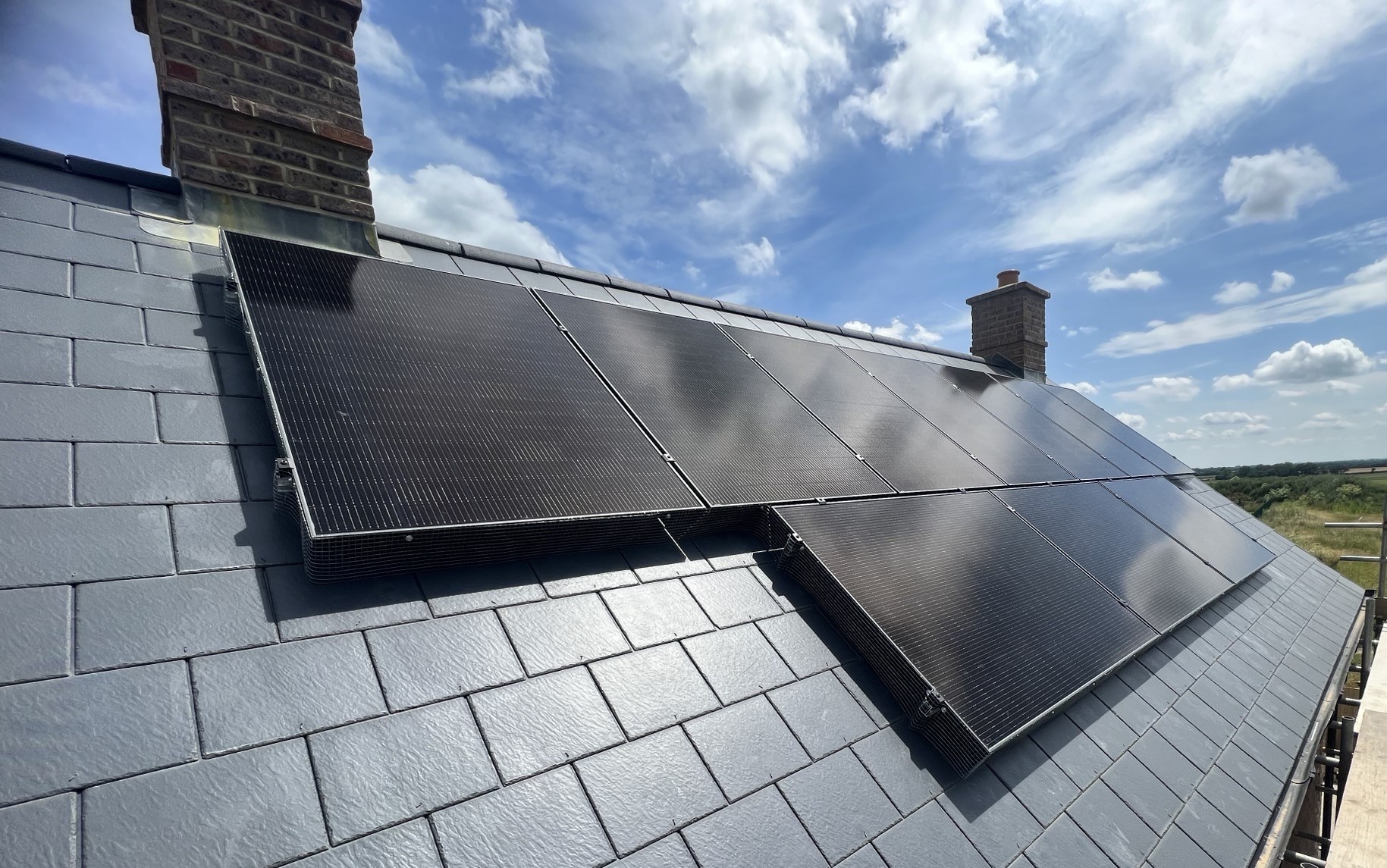When planning your residential solar installation, one key step is often overlooked – the DNO application. This process ensures that your solar panel system can safely connect to the National Grid, and it’s an essential step in the planning process of your solar panel installation for all homeowners installing a solar PV system larger than 3.68kWp.
At SolarTherm UK, we guide our customers across Essex, Kent, Hertfordshire and the surrounding South East through every stage of their solar journey, including handling your Distribution Network Operator (DNO) application from start to finish.
What is a Distribution Network Operator (DNO)?
A Distribution Network Operator (DNO) manages the electricity distribution network in your region, ensuring power is delivered safely and efficiently to homes and businesses.
While your energy supplier (like British Gas or Octopus Energy) sells your electricity, your DNO maintains the infrastructure – the power lines, substations and grid connections – that keep your lights on.
In the UK there are six main DNOs operating across 18 regions. Common DNOs across the South East include UK Power Networks, Western Power Distribution and Scottish & Southern Electricity Networks, covering areas such as Essex, Kent, Hertfordshire and Surrey.
If you’re not sure who your local DNO is, you can check using the Energy Networks Association postcode finder or your electricity bill should tell you. If you are still struggling, SolarTherm UK will be able to find out for you.
Why is a DNO Application Important for Solar Installations?
If your residential solar system generates more than 3.68kWp, your installer must apply to your DNO for approval before installation. This ensures the local electricity network can handle the extra power your panels export to the grid.
Without DNO approval:
- Your solar PV system might not legally connect to the grid
- You won’t be eligible for Smart Export Guarantee (SEG) payments for any surplus electricity your solar panels generate
- You could risk damaging the local grid or your solar equipment
At SolarTherm UK, we take care of the entire DNO application process, ensuring your installation is compliant, approved and ready to start earning you money.
Do I Need to Apply for a DNO Before Installing Solar Panels?
In most cases DNO approval needs to be applied for before installation can begin. If your solar PV system or battery storage exceeds 3.68kWp, your installer must submit a DNO application before installation. There are two main types of DNO applications:
G98 – Connect and Notify
This is relevant for when your solar PV system or battery storage is smaller than 3.68kWp. Your solar panels can be installed first and connected to the grid and your installer is only required to inform your DNO within 28 days of completion of the installation.
G99 – Apply to Connect
This is for larger systems over 3.68kWp. Your installer must apply and wait for approval before installation can begin. The process can take up to 11 weeks, so planning is key. Once approval is received your solar installation can go ahead as planned. On occasion, your DNO may restrict the size of your solar PV system or limit how much electricity you can export back to the grid. Your solar installer will discuss these options with you before installation and help you find the most cost effective solution for your property.
How the DNO Application Process Works
Here’s a step by step look at how your solar DNO application is handled:
Step 1 – Choose a Certified Installer
Always use an MCS certified installer like SolarTherm UK. We’re accredited and experienced in completing DNO applications correctly and have worked closely with most of the DNO operators in the UK. By using a certified installer you save time and avoid potential delays and issues.
Step 2 – Determine Your Application Type
We assess your property, usage and future energy needs, designing a solar PV system that is bespoke to your property. Your system’s size will determine whether you need a G98 or G99 application. We’ll handle the submission, liaise with the DNO and keep you updated throughout.
Step 3 – Installation and Registration
Once approved, your solar panel system will be installed. We will commission, test and register your system with the appropriate certification schemes and confirm DNO approval has been granted.
Step 4 – Receive Your Documentation
After completion of your installation, you’ll receive all relevant documents including your DNO approval, Building Regulations Completion Certificate and MCS Certificate.
Step 5 – Apply for the Smart Export Guarantee (SEG)
Once connected and on receipt of your documentation, you can apply for SEG payments, earning money for every kilowatt of renewable energy you export back to the grid.
Can a DNO Application Be Refused?
Occasionally, a DNO may restrict or reject an application if the local grid cannot safely take on additional energy exports. In these cases, your DNO might limit the amount of energy your solar panels can export, recommend an export limitation device or require grid upgrades, which can inevitably involve additional costs.
Our solar experts at SolarTherm UK will always discuss options with you and help you decide what is right for your property.
Why Choose SolarTherm UK for Your DNO Application?
We’ve helped thousands of homeowners across Essex, Kent and Hertfordshire make the switch to renewable energy seamless and stress free. When you choose SolarTherm UK you are choosing high quality and a knowledgeable and experienced team. We handle everything on your behalf, from DNO application to MCS certification and registration. Our MCS certified installers are fully accredited and insured, providing local experience with specialist knowledge. With SolarTherm UK you receive end to end service, from initial enquiry, to system design, installation and first class aftercare.
Get Started with Your DNO Application Today
Contact SolarTherm UK for a free, no obligation quote and design, tailored to your property, usage and future energy needs. No hard sell, just honest, expert advice.
Your home. Your energy. Your future.





